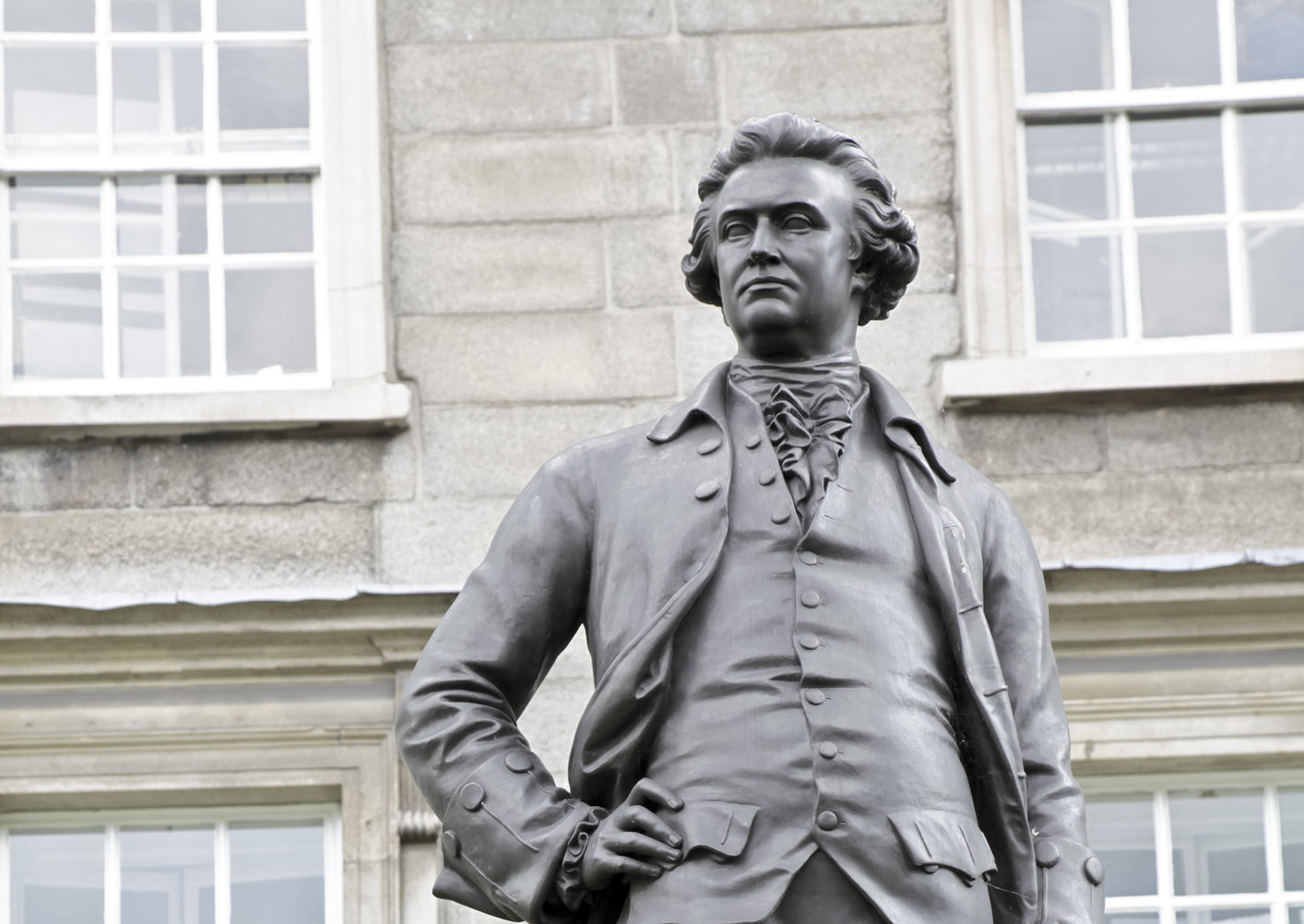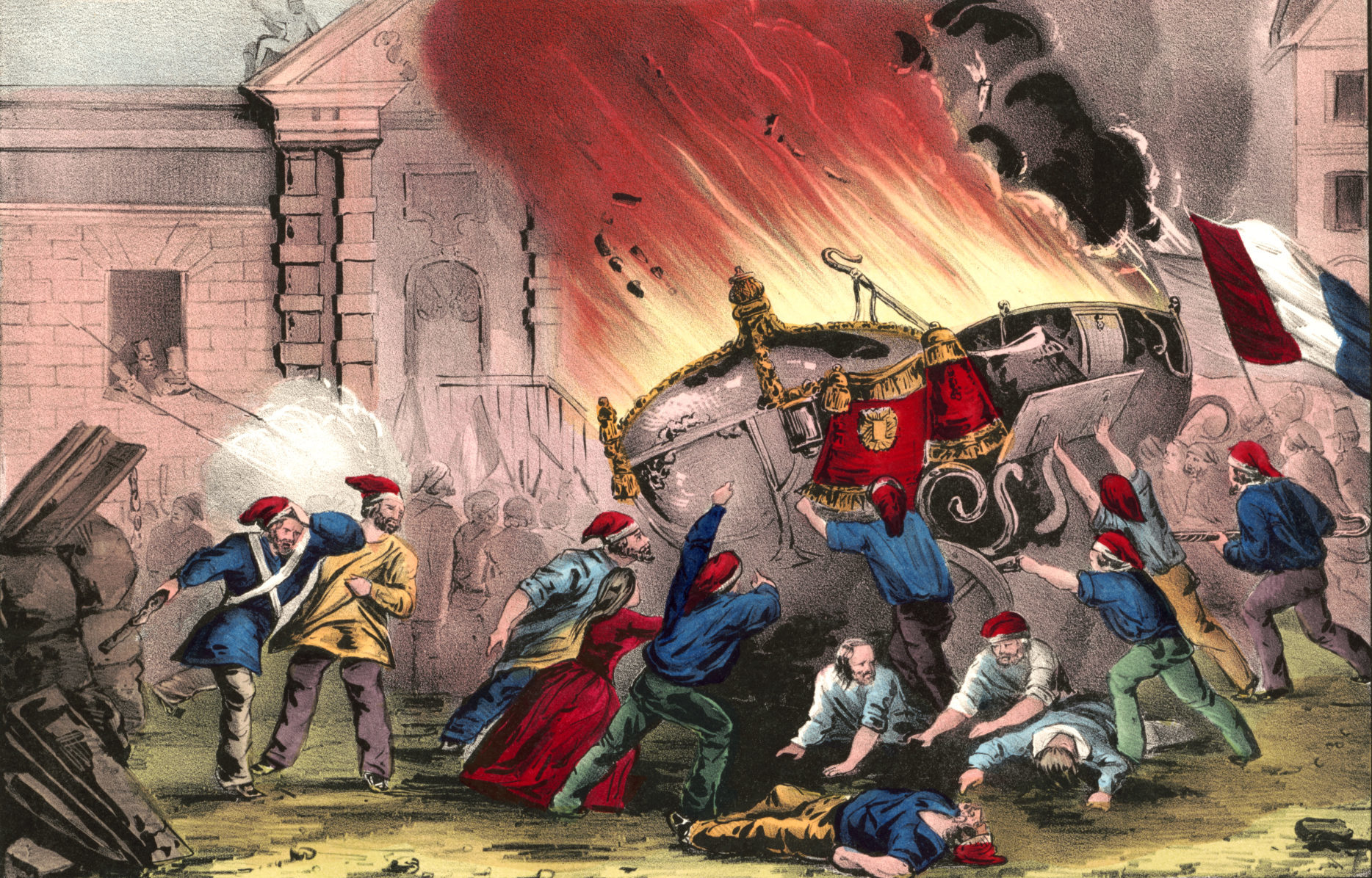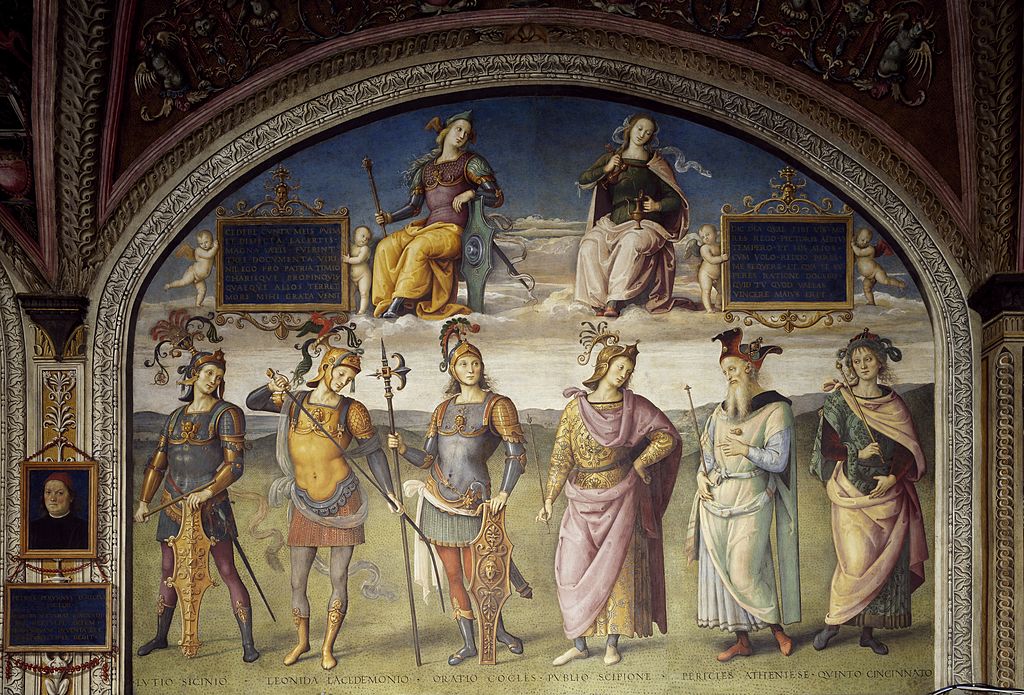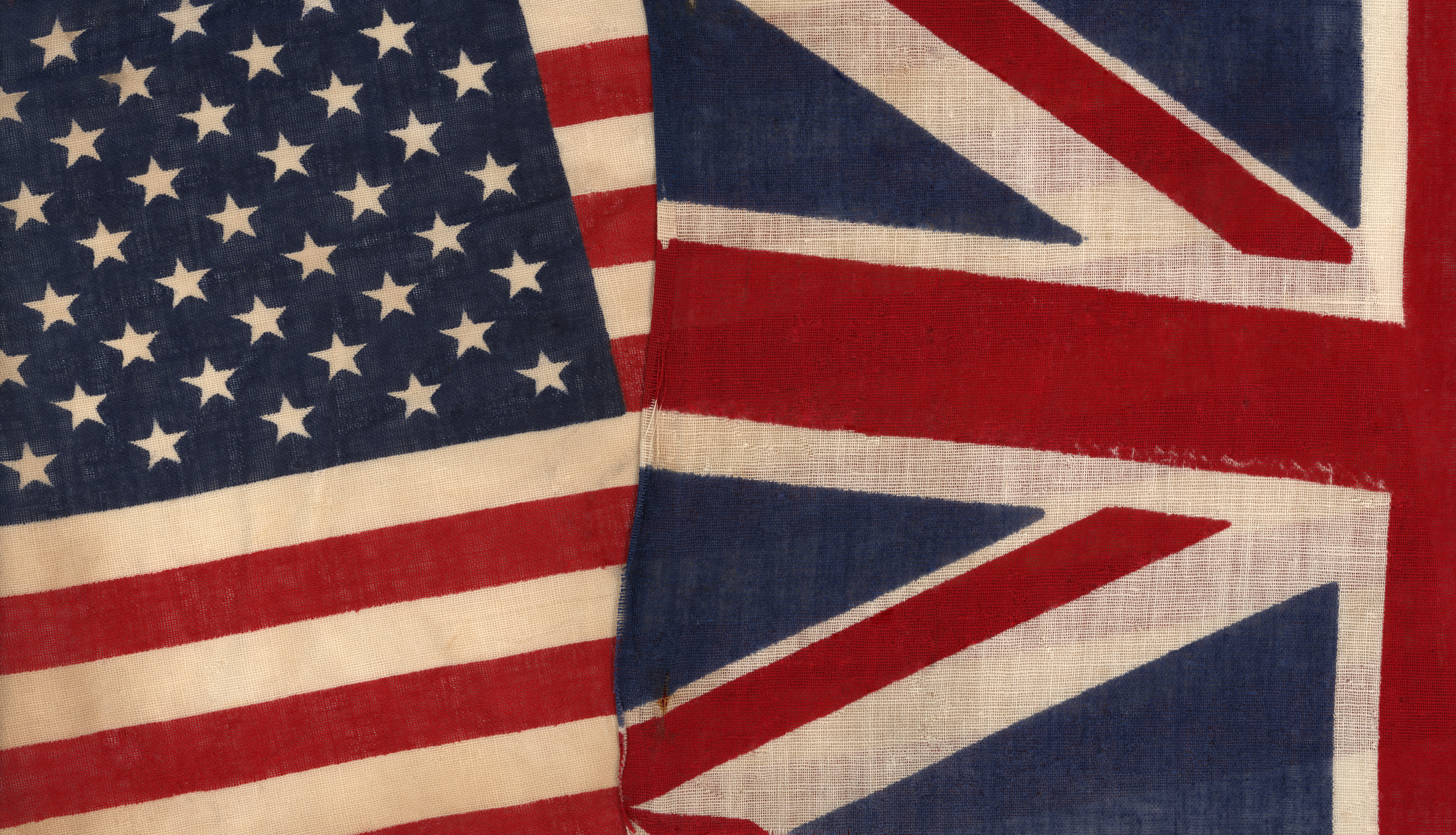The brave moderation and manly prudence of Edmund Burke.
Burke, Our Contemporary

There is wisdom to be found in obligation.
I am grateful to the editors of The American Mind for running an excerpt (“The Courage to See”) from the Burke chapter of my recently published book The Statesman as Thinker: Portraits of Greatness, Courage, and Moderation. I am equally grateful to each of the four respondents for engaging with my portrait of Edmund Burke in such thoughtful, discerning, and challenging ways. They had no reason to know that the choice to excerpt my reflections on “the brave moderation and manly prudence of Edmund Burke” was made by the editors and not by myself. I mention this only to highlight the fact that my unstinting admiration for Burke should not be confused with a desire to give a strained “Burkean” account of the American Founding. Nor do I ignore or downplay tensions between Burke’s emphasis on tradition and prescription and the Founders’ appeal to the possibility of a political founding grounded in “reflection and choice.”
In the book as a whole, I compare the conjugation of prudence and principle in the thought and statecraft of Burke and Lincoln and show their marked affinities and equally striking differences. Both are men of courage, insight, and prudence; both defend true moderation against ideological fanaticism; one abhorred the spirit of abstraction in politics, while the other prudently defended an “abstract principle” regarding equality and common humanity “applicable to all men at all times.” Regarding some of my friend Jean Yarbrough’s concerns, in my Tocqueville chapter, I discuss why Alexis de Tocqueville was sometimes hard on Burke, too hard given Tocqueville’s own considerable debts to some of Burke’s fundamental insights. Tocqueville’s luminous critique of the political irresponsibility and utopian “literary spirit” of French men of letters (today we would call them intellectuals) on the eve of the French Revolution of 1789 had already been powerfully limned by Burke in Reflections on the Revolution in France (1790). That is not the only insight of Burke’s to which Tocqueville is deeply indebted. Nevertheless, the great French political thinker rightly criticized Burke for underestimating the degree to which the centralizing propensities of the Old French monarchy had already sapped France of strength and vitality and had significantly undermined the cause of political liberty. And as a patriotic Frenchmen, Tocqueville found nobility in the principles of 1789 (the French Revolution, after all, had already become part of the country’s political inheritance) even as he excoriated the revolutionary Reign of Terror carried out, and defended in principle, by Robespierre and the Jacobins.
To make a long story short, I refuse to choose between Burke, Tocqueville, and Lincoln regarding what one might call the arts of admiration and see no reason for doing so. Steve Hayward is undeniably correct when he argues that Burke was among the wisest and most noble of modern statesmen, even if I think he is also worthy of being called a political philosopher (with some qualifications that Hayward points out). As Hayward suggests, the Anglo-Irish statesman and political philosopher was perhaps the closest thing we had or have to a philosopher-king, even if one who would have rejected such a role as both dangerous and hubristic. Burke not only preached prudence, “the god of this lower world,” as he called it, but he embodied high prudence in speech and deed. And Burke embodied the highest practical task of political philosophy as identified by Leo Strauss: to nobly and ably defend “sound practice against bad theory.” As Hayward notes, we live in a new age of corrosive ideology that takes aim at right reason, human nature, and the very idea of the continuity of civilization—I will return to this theme later. Ideological fanaticism has had another lease on life in the form of wokeness, identity politics, and renewed nostalgia for revolutionary and totalitarian politics. As I argue in The Statesman as Thinker, Burke very much remains our contemporary, especially if we approach him in a genuinely prudential spirit.
Brian Anderson has perfectly captured my intention regarding the continuing relevance of Burke. I do not confuse Burke with an American, but I do believe he remains an abundant source of practical wisdom for all friends of liberty and human dignity. As Anderson reminds us, Burke is the theoretician par excellence of ordered liberty, liberty accompanied and informed by wisdom, virtue, and practical reason. He defended the crucial role of deliberation in representative government and highlighted the “little platoons” so essential to a vibrant civil society (a theme developed with genius by Tocqueville) while also taking aim at murderous revolutionary fanaticism and a cruel, aggressive, politicized atheism. In addition, he fiercely rejected arbitrary power in the form of the abuses of the British monarchy, the “predations” of Warren Hastings and the East India Company, the disregard of long-established American liberties, and the cruel dispossession and disenfranchisement of Irish Catholics—a faith which Burke’s mother and wife shared. As Winston Churchill rightly insisted, “the Burke of Liberty” and “the Burke of Authority” were one. Burke was the preeminent example of true “consistency in politics,” as Churchill called it in a splendid 1932 essay by that name.
Richard Samuelson is right to remind us of the undeniably British context of Burke’s speeches and statesmanship. What is prudent in an English setting may be less prudent in an American one, and vice versa. But drawing on a 1957 essay by Raymond Aron that addresses the prospects for conservatism in the contemporary world (De la Droite), I would like to suggest another way of approaching Burke’s enduring wisdom, one that is at once both historical and philosophical. Aron believed that there was a crucial and necessary role for Burkean wisdom within a broadly liberal political order. To be sure, a viable conservatism must accept the genuine achievements of the modern liberal order: “The wisdom of Montesquieu” with its emphasis on power checking power, the legitimacy of egalitarian aspirations (if not fanatical or doctrinaire egalitarianism), and “the progress of productivity” that is a compelling practical argument for the modern commercial order. But Burkean wisdom is indispensable in multiple ways: It adamantly opposes “the ravages of Jacobinism” (renewed by Communist totalitarianism in the twentieth century and woke ideology in our day). It is a wisdom at once conservative and (classically) liberal that shows genuine bravery in resisting ideological fanaticism while defending the elementary distinctions between good and evil and truth and falsehood at the center of civilized life.
As Aron points out, Burke is perhaps irrelevant to this task if we read him narrowly as a critic of rationalism per se, as a mere defender of the Old Regime “in its particularity,” or as a defender of rigid hierarchical distinctions. But suppose we approach Burke more truly as a half-liberal and half-conservative who exposed ideological fury for what it was, nobly defending the reciprocity of rights and duties, and who embodied practical wisdom in all its splendor rather than opposing democracy per se. In that case, Burke becomes the perfect antidote to modern nihilism and frenzied Promethean impatience. While we today are tempted to repudiate our noble Western inheritance, Burke reminds us of the continuity of generations and the need for gratitude for that which has been passed on to us. As the social philosopher Michael Polanyi argued in his 1966 book The Tacit Dimension, “the ideal of unlimited gradual progress” represented by Tom Paine can only be saved from self-destruction by “an authoritative traditional framework” upheld by the likes of Burke. Liberal progress is thus dialectically dependent on conservative continuity, on a humane framework of civilized continuity. Real social progress requires a self-conscious rejection of the fanaticism inherent in the ideology of Progress with a capital P, the philosophy of the tabula rasa.
For their part, the American Founding Fathers did not confuse the admirable constitutional founding of our country with some revolutionary “Year Zero,” like the nihilistic and murderous Jacobins and Bolsheviks. Much like Burke, they presupposed the continuity of civilization and of a decent moral order that gave true substance and dignity to human freedom. To be sure, consent is a precious political instrument, an essential ingredient of true self-government and of government that is both limited and accountable. But Burke, like the broader classical and Christian traditions, reminds us that our most precious obligations—that of a parent to a child, a decent person to the moral law, a patriot to his country—are hardly the product of pure consent or voluntary choice. In that ‘traditional’ recognition of moral and civic obligation lies wisdom.
The American Mind presents a range of perspectives. Views are writers’ own and do not necessarily represent those of The Claremont Institute.
The American Mind is a publication of the Claremont Institute, a non-profit 501(c)(3) organization, dedicated to restoring the principles of the American Founding to their rightful, preeminent authority in our national life. Interested in supporting our work? Gifts to the Claremont Institute are tax-deductible.
Edmund Burke’s prudential wisdom has much to teach American conservatives.
A prudential reading of a prudent statesman.
Prudence looks different on each side of the Atlantic.
Burke, Tocqueville, and Lincoln on the right ordering of society.





